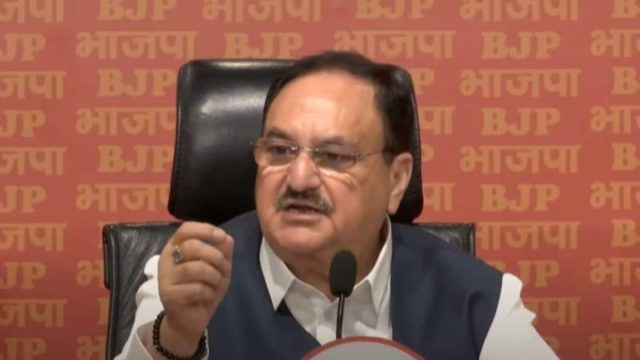Last Updated:
Maharashtra Deputy Chief Minister Eknath Shinde called Azmi’s statement as “wrong and acceptable” and said that he should be charged with treason.

SP leader Abu Azmi (File)
Samajwadi Party (SP) leader and Maharashtra MLA Abu Azmi on Monday stirred a controversy after praising Mughal ruler Aurangzeb as a great administrator.
He claimed that “all the wrong history is being shown” (in reference to Bollywood movie Chava- biopic of Chhatrapti Sambhaji Maharaj) and that Aurangzeb “built many temples” and was “not a cruel leader.”
Mumbai: Maharashtra Samajwadi Party President Abu Azmi on Aurangzeb says, “All the wrong history is being shown. Aurangzeb built many temples…Aurangzeb is not a cruel leader” pic.twitter.com/cfSr26ZE6o— IANS (@ians_india) March 3, 2025
BJP and Shiv Sena legislators strongly condemned Azmi’s statement and demanded his apology.
Maharashtra Deputy Chief Minister Eknath Shinde called Azmi’s statement as “wrong and acceptable” and said that he should be charged with treason.
“His statement is wrong and should be condemned. Aurangzeb tortured Chhatrapati Sambhaji Maharaj for 40 days; calling such a person good is the biggest sin, and hence, Abu Azmi should apologise. Our Chief Minister has taken this matter seriously. He should be charged with treason,” Shinde said.
Who Was Aurangzeb?
The Mughal ruler has once again gained political attention after Vicky Kaushal’s period drama ‘Chhaava’ shone a light on the valiant story of Chhatrapati Sambhaji Maharaj– whose unwavering resilience inspired the Marathas in their fight against the Mughals.
Sambhaji Maharaj was tragically executed at the hands of Aurangzeb.
Aurangzeb was the sixth Mughal emperor, who reigned from 1658 until his death in 1707. Under his reign, the Mughal Empire reached its greatest extent- a territory spanning nearly the entirety of the Indian subcontinent.
Aurangzeb came to the throne after imprisoning his father and having his older brother killed. He has been described as a tyrant by historians- an expansionist who imposed tough Sharia laws and ruled ruthlessly.
His critics argue that many of the Mughal ruler’s policies abandoned his predecessors’ legacy of pluralism and religious tolerance like introduction of the jizya tax, demolition of Hindu temples and the execution of Sambhaji Maharaj.




